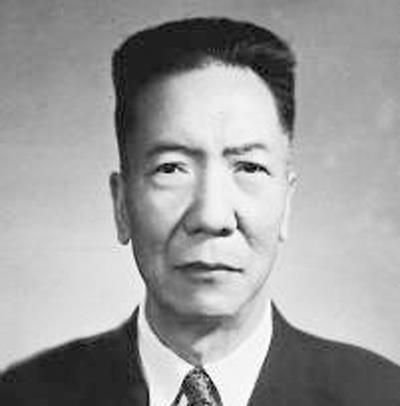In the 1955 conferment ceremony, New China thus produced ten marshals, of whom nine were from the Eighth Route Army and one from the New Fourth Army. But we in China seem to have more than these two teams, it seems that there are other teams, is there one missing, yes, we have another Northeast Anti-Japanese Coalition Army that cannot be ignored, but no one in this team has entered the list of the ten marshals.
Is it because the contribution of the Northeast Anti-Japanese Coalition Army is not as much as the other two teams? Of course not. After reorganization in 1937, the Eighth Route Army had 46,000 men, while the New Fourth Army had only more than 10,000 men. Although the Northeast Anti-Japanese Coalition Army was smaller than the Eighth Route Army, the number of people exceeding 30,000 was not particularly small, even if it was twice that of the New Fourth Army. During the battle, the Northeast Anti-Japanese Coalition Army launched more than 100,000 attacks on the Japanese and Kou, annihilating nearly 200,000 Japanese puppet troops. This figure is comparable to that of the Eighth Route Army. Unfortunately, the Northeast Anti-Japanese Coalition did not have a symbolic person like the Eighth Route Army, and at that time, the most famous figures in the Northeast Anti-Japanese Coalition Army were Yang Jingyu, Wang Detai, Zhao Shangzhi and Zhou Baozhong. But the first three have already died before the founding of the country, and Zhou Baozhong is still alive, so let's take a look at Zhou Baozhong.

However, Zhou Baozhong, who had been fighting in the three eastern provinces for a long time, was not from the eastern three provinces, but from Yunnan. He took part in the Patriotic War at the age of 15, a very rare experience among all the founding generals. After the September 18 Incident, he was sent to the three eastern provinces to organize the anti-Japanese coalition army, and also served as the secretary of the military committee of the Manchurian Provincial Party Committee, so he can also be regarded as one of the founders of the Northeast Anti-Japanese Coalition Army.
Although he was a very large-looking officer on the surface, he was braver than anyone else in the battle, and once his left leg was unfortunately shot by a bullet, he directly asked his comrades to use a knife to cut the bullet out of him directly, and once he was hit in the abdomen, and the intestines were exposed, and he took a piece of chicken skin and pasted it on the wound and continued to fight with the enemy.
Such a "tiger" general was a very headache for the Japanese, at that time, in order to get rid of Zhou Baozhong, the thorn in the eye, the Japanese could be regarded as a bloody fund, claiming that one or two of his flesh could be exchanged for one or two gold, but no one ever caught him. After the deaths of Comrades Yang Jingyu and Zhao Shangzhi, he became the leader of the Northeast Anti-Japanese Coalition Army, actively contacted the Soviet Red Army, and also became the brigade commander of the Soviet Red Army.
Later, our army fought a decisive battle with the Kuomintang in the three eastern provinces, and his troops were the original cornerstone of the Fourth Field Army, and after the successful establishment of the Fourth Field Army, he became deputy commander-in-chief. However, after the founding of the People's Republic of China, he left the northeast where he had spent half his life in the northeast and returned to his hometown of Yunnan, where he was also appointed vice chairman.
Looking back on his life, as the backbone of the Northeast Anti-Japanese Coalition Army, he should have been awarded the rank of great general, but he missed the award ceremony in 1955. Because he suffered from a serious illness in the early days of the founding of the People's Republic of China, he did not participate when he was assessed as a cadre in 1952, and he also left the ranks of our army in 1955.
Chen Shuai and others have also left the ranks of our army, but because they also symbolize an important team, they have all been awarded military ranks. So naturally he also met this condition, but he was too low-key and didn't care too much about the rank, so he missed it. But he also received three first-class medals, which were also a compensation.